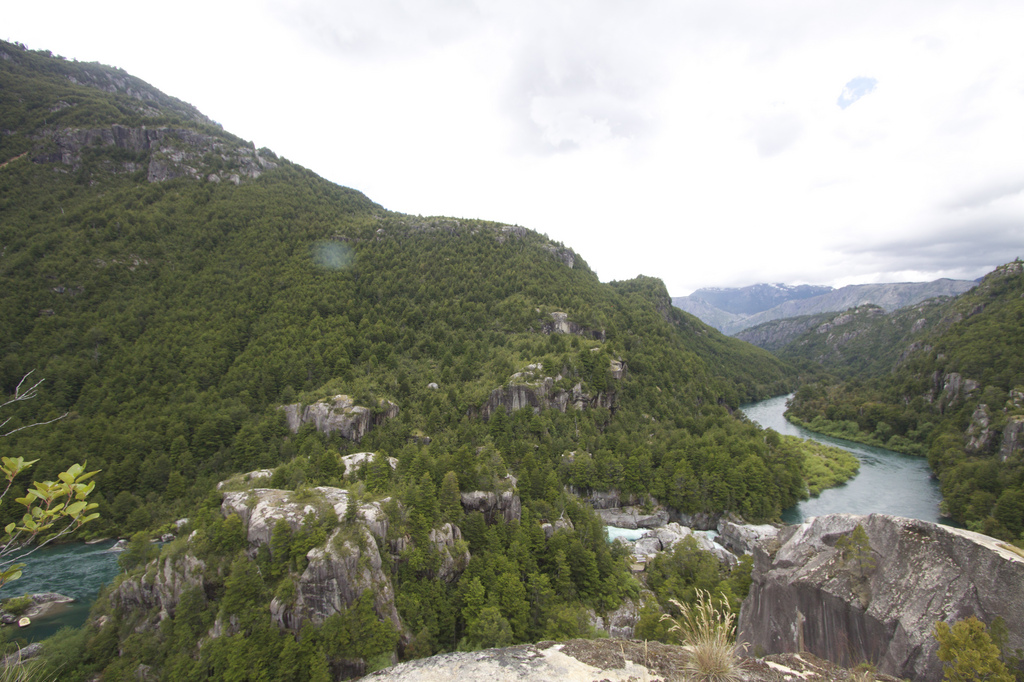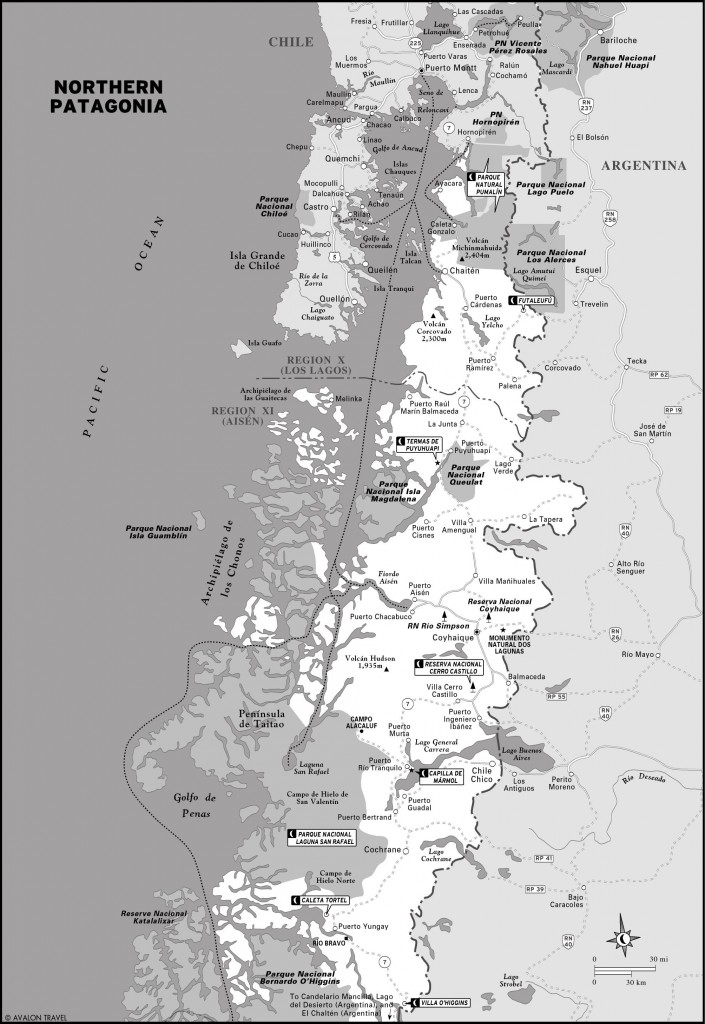Given its reputation for white-water—some say it is the world’s best—Futaleufú draws outdoor recreationists like a magnet. But what works for this tidy village, its forested mountains, and its namesake river—spectacular natural beauty, cleanliness, and isolation—also works against it. The 1,200 or so who live here may be on borrowed time, possibly powerless to fend off Endesa, the powerful Spanish electric utility company that wants to build three massive dams where at least three international rafting and kayaking enterprises have elaborate summer camps and several Chilean operators spend at least part of the season.
Endesa has backed off recently, but other threats have been a gold mine in the upper reaches of the Río Espolón drainage, and the 2008 eruption of Volcán Chaitén, which left substantial amounts of ash in and around the town. The eruption, though, also stopped construction on a new road from Chaitén that would have left the valley open to hydroelectric development. The unfortunate introduction of invasive Didymosphenia (the so-called “toilet paper algae”) also threatens the clear waters in some of its tributaries. Despite these challenges, the “Fu” remains one of the world’s cleanest and most challenging rivers. Both foreign and Chilean operators hope to kindle local and national enthusiasm for preserving the river and its surroundings. Fly-fishing also has a presence here.

The Futaleufú river in southern Region X (Los Lagos). Photo © Zachary Collier of Northwest Rafting Company.
Only eight kilometers west of the Argentine border, at the confluence of the Río Espolón and the Río Futaleufú, the village (pop. 2,700) is 155 kilometers southeast of Chaitén via the Carretera Austral, Ruta 235 from Villa Santa Lucia, and Ruta 231 from Puerto Ramírez. Futaleufú’s plan is a rectangular grid whose focus, if not its precise center, is the manicured Plaza de Armas. On the plaza’s south side, Bernardo O’Higgins leads east toward the Argentine border, while Arturo Prat, on the west side, leads south toward westbound Ruta 231.
White water is the main attraction here. But this is a multi-sport destination, where hiking, climbing, horseback riding, and mountain biking are also grabbing attention. Several U.S. rafting/kayaking operators maintain summer camps in the vicinity in October-April.
The Class III Espolón is a good starter river. Parts of the Fu (Futaleufú) are suitable for those with limited experience, though rapids like the Class V Terminator can challenge even top professionals. It’s less common for inexperienced rafters to become “swimmers” than it once was, but it’s certainly not unheard of.
For a half-day Class IV descent on the Fu, figure about US$100 per person, though groups might be able to negotiate a discount with some Chilean companies. This involves descent of the river “between the bridges,” a nonstop succession of Class III-IV rapids. Novices get out before tackling the Class V Casa de Piedra rapid. Rates normally include lunch and transfer from town and back.
For river rafting and other activities, drop-in visitors can try local operators and offices. Cara del Indio (Ruta 231 Km 35, tel. 02/1964239) has a camp and cabañas on the Fu, 35 kilometers west of town. Cóndor Fu (Sector Nordeste No. 1, cell 09/6488-7484) draws praise from overseas operators. Other possibilities include Futaleufú Explore (O’Higgins 772, tel. 065/2721527), Patagonia Elements (Pedro Aguirre Cerda 549, tel. 09/7499-0256), and the U.S. operator Expediciones Chile (Gabriela Mistral 296, tel. 065/2721386).
For horseback riding, contact Rancho las Ruedas (Piloto Carmona 337, tel. 065/2721294), in the woods at the north end of Arturo Prat.
Bus services to and from Futaleufú via Argentina are subject to abrupt changes. There is no bus terminal, and companies will either pick you up or tell you where to wait, especially as services often begin in La Junta.
Several companies now operate between Futaleufú and Puerto Montt (US$45, 11 hours) via Argentina: Buses Transaustral (Balmaceda 501, tel. 065/2721360), which has larger, more comfortable buses; Feryval (Pedro Agurre Cerda 415, tel. 065/2721312); and Lago Espolón (O’Higgins 505, tel. 065/2721215).
Transportes Cárdenas (Balmaceda 501, tel. 065/2721360) goes daily except Thursday to Chaitén (US$4), and makes connections for La Junta in Villa Santa Lucía on Monday, Wednesday, and Friday. Buses Becker (Balmaceda 501, tel. 065/2721360, [email protected]) connects directly with Coyhaique (US$33, 10.5 hours) and intermediates Sunday at 9am.
Feryval and Turismo Futaleufú (Pedro Aguirre Cerda 436, tel. 065/2721458) go to the Argentine border in the morning and afternoon on Monday and Friday, with connections to Esquel and beyond. Otherwise, the only option is a taxi.

Northern Patagonia
Excerpted from the Fourth Edition of Moon Patagonia.